Yes, poor sleep habits and an uncomfortable mattress often trigger or worsen TMJ issues. Bad sleep posture, teeth grinding, and lack of proper neck support increase strain on the jaw joint, while an unsupportive mattress or pillow misaligns the spine and jaw, causing morning pain and stiffness.
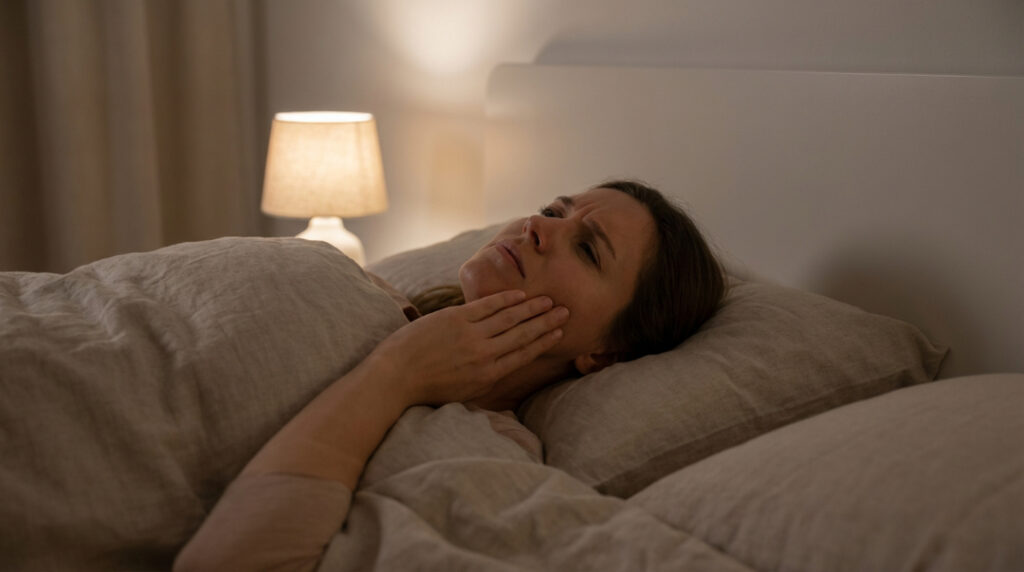
TMJ, or temporomandibular joint disorder, refers to problems affecting the hinge joint that connects your jaw to your skull. This joint allows you to talk, chew, and yawn.
Common symptoms include:
Research shows that mechanical stress, poor posture, and muscle tension play a direct role in worsening TMJ pain. In fact, many patients ask, can TMJ affect your posture? The connection goes both ways—misalignment in the spine can strain the jaw, while TMJ tension can disrupt posture. Sleep habits and your mattress are two overlooked but critical factors.

The way you sleep influences jaw tension.
Transitioning positions helps reduce strain. Use pillows behind your knees or sides to train your body to remain on your back. Adjust pillow height so your head stays aligned with your spine.
Poor sleep routines worsen TMJ issues by increasing body tension.
Practical steps include:
Bruxism, or nighttime teeth grinding, is closely tied to stress and poor sleep quality. It overworks the jaw joint and causes enamel wear.
Signs of bruxism:
Night guards from your dentist help reduce grinding pressure, but addressing sleep quality lowers the root cause.
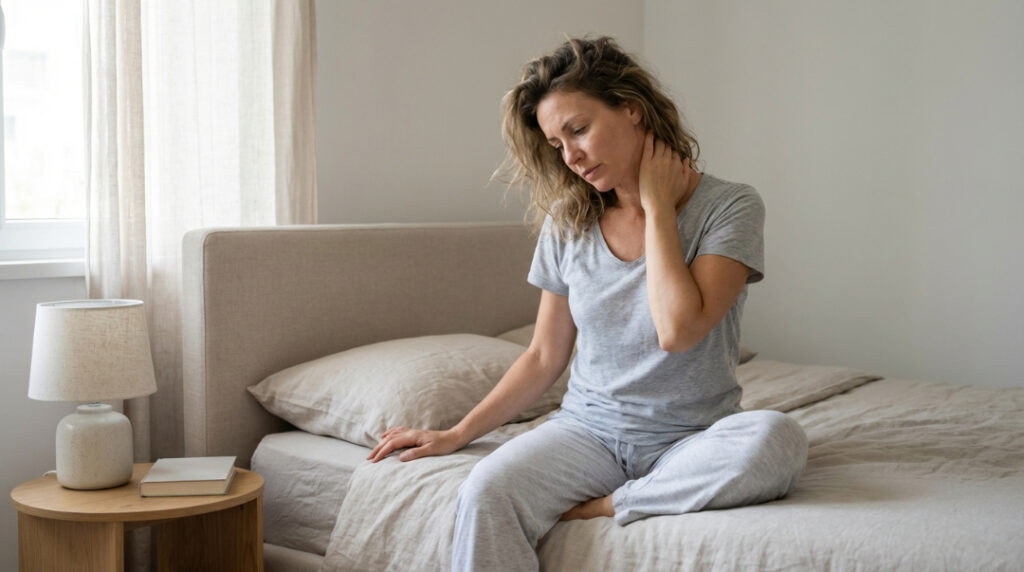
A supportive mattress keeps your spine and jaw in alignment. If your mattress is too soft, your body sinks and your neck tilts. If it is too firm, pressure builds on your shoulders and jaw.
Types of mattresses:
A mattress past 7–10 years of use often loses support and should be replaced.
Pillows directly influence jaw alignment. A pillow that is too high tilts the head forward, tightening jaw muscles. Too flat, and your neck collapses backward.
Tips:
The sleep environment plays a role in TMJ discomfort:
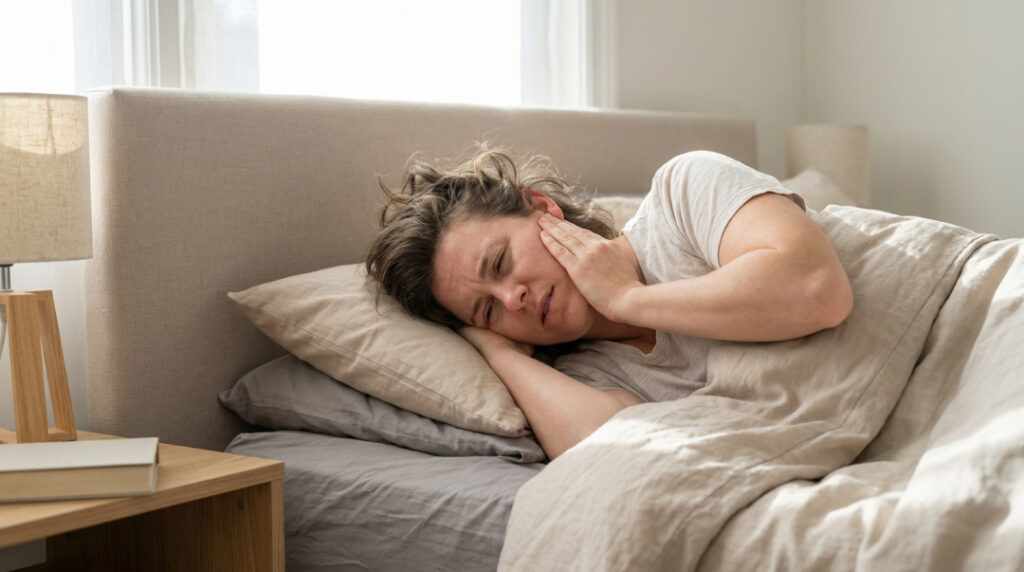
If these symptoms appear consistently, your mattress or sleep posture may be contributing.
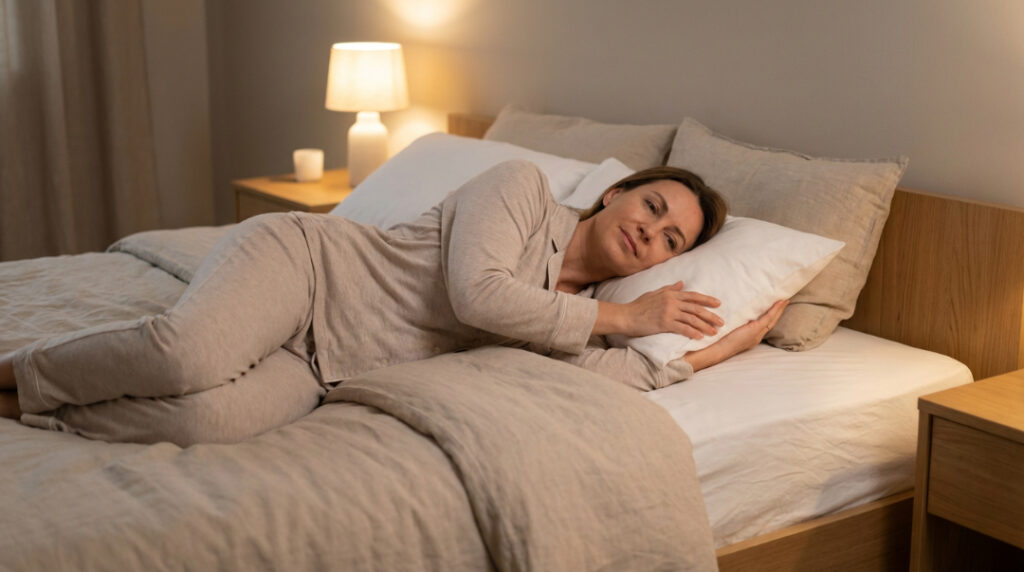
If you struggle to change habits, use body pillows or rolled towels to stabilize your position.
When buying a mattress:
For pillows:
Stress often drives jaw clenching. Add these practices:

Sometimes adjustments are not enough to control TMJ pain. In these cases, professional help is important.
Options include:
Buford Dentist provides treatment options tailored for TMJ pain, including night guards, relaxation guidance, and referrals for therapy when needed.
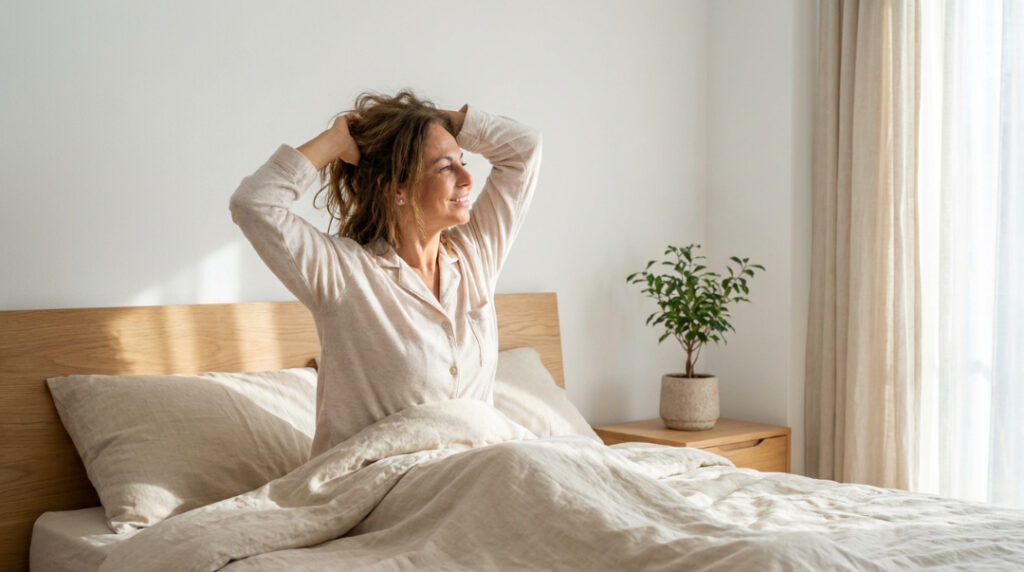
A patient experienced daily jaw pain and headaches despite using a mouthguard. Their mattress was sagging and their pillow too thick. After replacing both with supportive options and learning back-sleeping techniques, jaw pain reduced within weeks. This demonstrates how sleep environment often plays a larger role than expected.
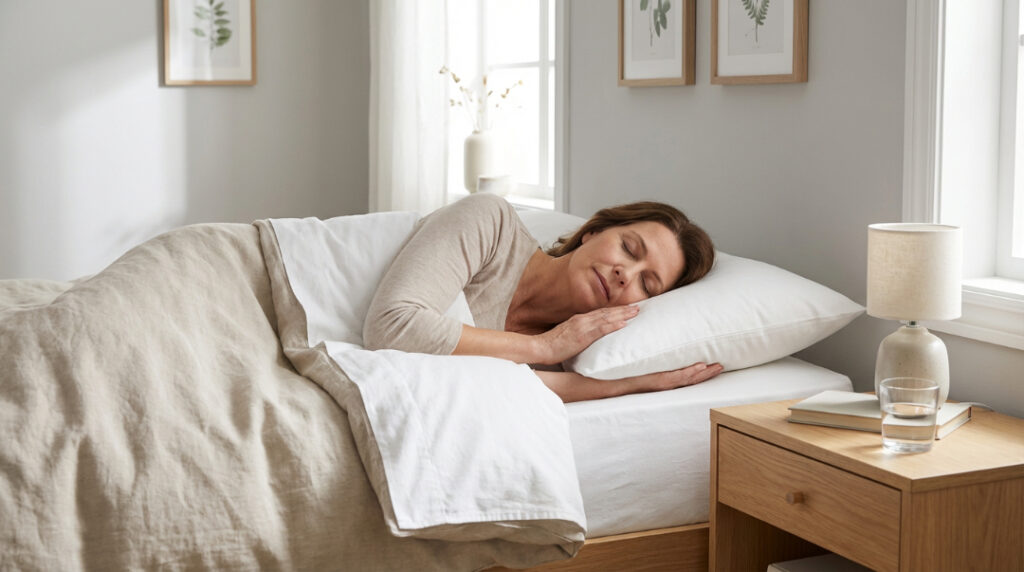
Addressing TMJ requires more than treating the jaw alone. Poor sleep habits and an unsupportive mattress often drive symptoms. By improving sleep posture, replacing worn-out bedding, and following stress management practices, many people experience lasting relief. For persistent pain, Buford Dentist offers professional solutions tailored to your specific needs.